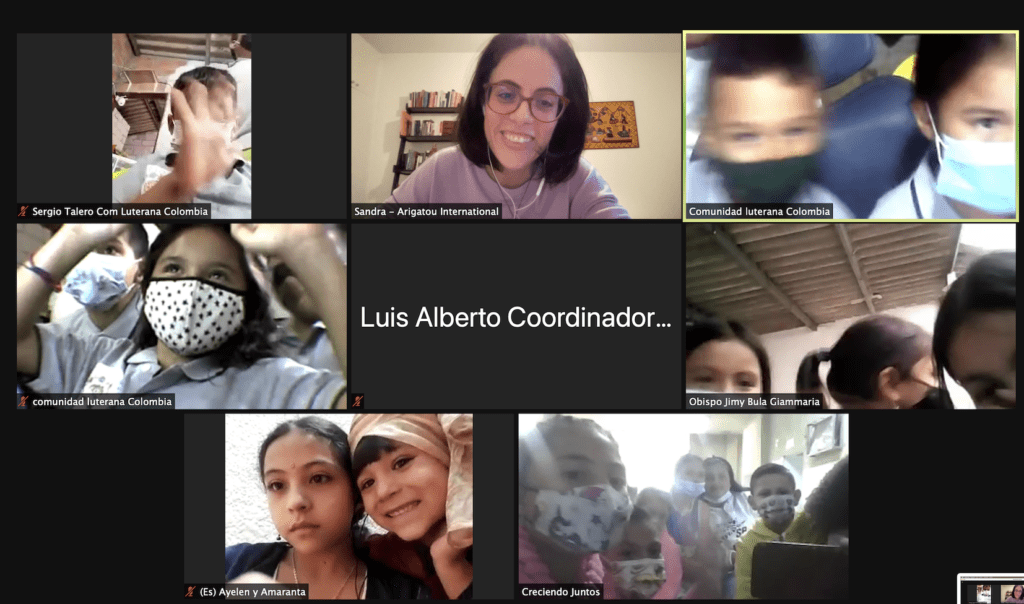The Covid-19 pandemic has exacerbated inequalities among children, and an aspect where this is more evident is the children’s right to good quality education.
If children don’t have the same access to the internet, education during the pandemic cannot be the same for all. This was one of the main conclusions that children from Colombia and Cuba shared on Friday, November 5, during their participation in one of our guided tours to the virtual exhibition Faith in Action for Children.
More than 20 children from different rural communities in Colombia joined this interactive activity thanks to the support of local faith leaders who provided the location and the devices to make this dialogue possible.
Despite all the efforts, the online session was marked by difficulties in accessing the internet. Several children in Cuba tried to join the dialogue, but only one of them could make it, which led to the conversation about how the pandemic has made education harder for many children around the world suffering disproportionately from the lack of digital gadgets and access to the internet.
Ana Isabela, 8 years old from Santiago de Cuba, shared how she and other children in her community have been supporting their peers with limited technological access by providing educational information that they collected online and printed to give to their peers together with some school supplies. This child-led project was awarded by Arigatou International in 2020 and received a seed grant to kickstart it. Learn more here.
Children in Colombia have been gradually returning to face-to-face schooling, but as Laura, 11 years old, said “it is not yet the same as before”. Laura belongs to a rural community where access to the internet is scarce and limited.
During the dialogue, Laura and her peers had the opportunity to review the drawings, articles, and videos of other children from around the world about the impacts of the pandemic on their lives, and they reflected on how other children in disadvantaged regions have even more difficulties catching up with their studies as they cannot have online lessons or watch lessons on TV. In this scenario, parents and adults in general “should support children more, stay closer to us, and be more patient with us” recommended Ana Isabela.
